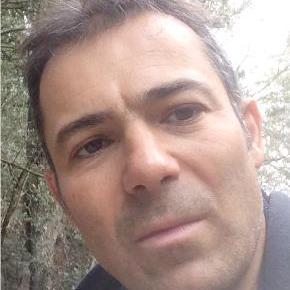Bioapplication of the Circular Economy Concept to Wastewaters
A special issue of Applied Sciences (ISSN 2076-3417). This special issue belongs to the section "Applied Biosciences and Bioengineering".
Deadline for manuscript submissions: closed (31 January 2020) | Viewed by 303
Special Issue Editor
Interests: wastes and agro-industrial wastes valorization; anaerobic digestion; biomethane; biohydrogen; volatile fatty acids; polyhydroxyalkanoates; immobilized biofilm reactors; recovery of polyphenols from agro-industrial wastes; solid phase extraction; ecotoxicological testLorenzo Bertin
Special Issue Information
Dear Colleagues,
I have the pleasure to introduce you to this Special Issue dedicated to the recovery and valorization of wastewaters, whose reuse in agronomic and industrial frameworks is receiving increasing interest due to the pauperization of freshwater resources. Depending on the related origins, liquid wastes can have different features, and they can be processed through the application of different approaches in order to remove polluting organic and inorganic fractions, which can be responsible for detrimental effects if released in receiving environmental compartments. Among wastewater treatment strategies, biotechnologies play an important role by conventional activated sludge plants, specific pollutants biodegradation in dedicated processes, as well as the exploitation of the soluble organic fraction for the production of valuable products or energy vectors; in addition, several physical–chemical approaches can be applied for the recovery of molecules and nutrients, among them nitrogen and phosphorous.
With all this in mind, I am very glad to invite you to contribute to this Special Issue through the submission of research papers and reviews concerning innovative applications for the valorization of wastewaters through the recovery of nutrients and valuable compounds, biological removal of contaminants, and biotechnological production of chemicals, biopolymers, and renewable energy.
Prof. Dr. Lorenzo Bertin
Guest Editor
Manuscript Submission Information
Manuscripts should be submitted online at www.mdpi.com by registering and logging in to this website. Once you are registered, click here to go to the submission form. Manuscripts can be submitted until the deadline. All submissions that pass pre-check are peer-reviewed. Accepted papers will be published continuously in the journal (as soon as accepted) and will be listed together on the special issue website. Research articles, review articles as well as short communications are invited. For planned papers, a title and short abstract (about 100 words) can be sent to the Editorial Office for announcement on this website.
Submitted manuscripts should not have been published previously, nor be under consideration for publication elsewhere (except conference proceedings papers). All manuscripts are thoroughly refereed through a single-blind peer-review process. A guide for authors and other relevant information for submission of manuscripts is available on the Instructions for Authors page. Applied Sciences is an international peer-reviewed open access semimonthly journal published by MDPI.
Please visit the Instructions for Authors page before submitting a manuscript. The Article Processing Charge (APC) for publication in this open access journal is 2400 CHF (Swiss Francs). Submitted papers should be well formatted and use good English. Authors may use MDPI's English editing service prior to publication or during author revisions.
Keywords
- wastewater treatment
- bioremediation
- biodegradation
- activated sludge
- nutrients recovery
- nitrogen
- phosphorous
- biorefinery
- bio-based chemicals
- biopolymers
- polyhydroxyalkanoates
- bioenergy
- anaerobic digestion
- acidogenic fermentation
- biomethane
- biohydrogen





